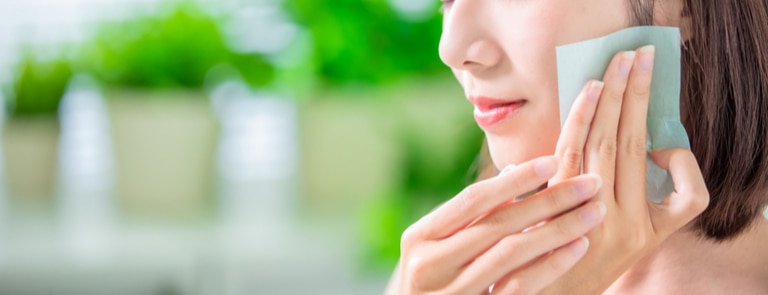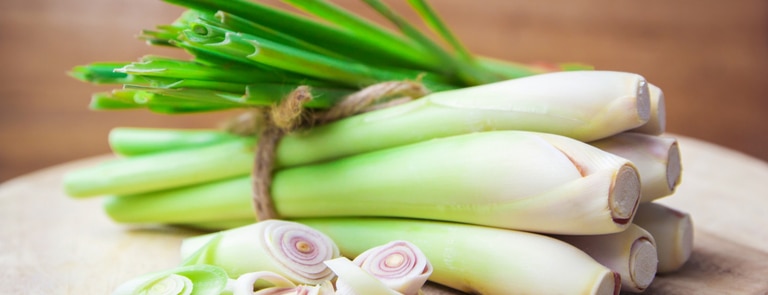10% off £35
Code:SAVE
6 collagen myths busted by experts

True or false? With a little help from two nutritionists, we’ll debunk six common myths about collagen for your skin, hair and joints.
Summary
1There’s only one type of collagen...
Actually, there are many different types of collagen in your body. Let’s look at three of them...
2Collagen drinks and powders are less effective
Collagen drinks have gained popularity for their potential benefits, but the evidence remains somewhat inconclusive...
3I’m too young to worry about my skin
Collagen is one of the most abundant proteins in our bodies, from lining our organs to supporting our skin's structure, it does a lot for us...
Some people swear by collagen smoothies, collagen tablets and collagen gels, while others are yet to take the plunge. Superfan or sceptic, the best results come from being fully informed, which is why we’ve asked two expert nutritionists – Alex Thompson and Alex Glover – to help us sort the collagen facts from the collagen fiction.
Myth 1. There’s only one type of collagen...
"Not true!" says Alex Thompson, Senior Nutritionist at H&B. Actually, there are many different types of collagen in your body – let’s look at three of them:
- type I collagen is the most common type of collagen in your body and the one you might be thinking of when it comes to your skin, hair and nails. It helps to keep skin elastic and healthy. It’s present in your tendons, organs and bones 1,2
- type II collagen is associated with your joint health. It’s the main component of cartilage and is also vital in your connective tissue, spinal discs and eyes 3
- type III is found in the intestines, bowel, uterus and bone marrow. It’s important for the early stages of wound healing before it’s replaced by type I 4, 5
Each type of collagen has different properties, meaning, the type of collagen you choose to take may also impact your body differently.
Some people decide to take a specific type of collagen depending on their goals. For example, our skin is made of up to 90% type I collagen which marine collagen (from fish) is most abundant in.6 So, if you wanted to support your skin by taking collagen, then choosing a marine collagen would potentially be best suited.
However, not all types of collagens have been researched to the same extent. Scientists are yet to determine with larger robust clinical evidence how effectively collagen is absorbed and utilised in our body when taken as a supplement.2
Bovine collagen is made from cows (or less commonly buffalo and bison). It’s high in both type I and type III and is more similar to our human collagen than marine sources. However, its bioavailability – the ease with which it’s absorbed in your body – is slightly lower.7
You can also get vegan collagen, which is derived from plant sources. “These vegan alternatives contain a variety of individual amino acids that are synthetically produced" explains our Alex.
So, it turns out, collagen isn’t just collagen. And while you may still see benefits from any kind of collagen, it’s worth deciding which is best for you – why not ask our colleagues in store to help?

Myth 2. Collagen drinks and powders are less effective
Collagen drinks have gained popularity for their potential benefits, but the evidence remains somewhat inconclusive.
Saying this, ready-made collagen drinks make it super-convenient for you to potentially support your skin.
These drinks contain hydrolysed collagen, which means the collagen has been broken down into smaller molecules, making it easier to absorb into the bloodstream.8 Hydrolysed collagen is highly sought after in the pharmaceutical industry due to its promising benefits on the skin and biocompatibility.8
Collagen powder is another source of hydrolysed collagen and is designed to be mixed into your food or drinks. And it's good to know that hydrolysed collagen drinks and powders are as effective as collagen tablets and gummies.
So, what's the expert view? Alex Thompson says: “To improve skin with collagen, oral supplementation is most effective. Topical application of collagen has great moisturising effects but the collagen itself won’t improve skin elasticity. This is because it’s not able to fully penetrate the skin’s layer to then be incorporated into the skin’s structure. However oral supplementation provides both benefits.”
Myth 3. I’m too young to worry about my skin
Skin is an important organ, which is why we all need to take care of it through effective use of suncream and eating a healthy diet. But when it comes to anti-ageing, it's right to say you don't need to think about it too early. Here's why...
Before we hit 20 years old, we’re in our peak collagen-producing days so there’s really no need to supplement it. However, it’s believed we lose 1% of our collagen every year after that point – so it may be worth a try in your twenties.9
Taking collagen preventatively from then on may help to minimise the effects of ageing on your skin, hair and joints – though of course, everyone's body shows its age at different rates. This can depend on genetics, diet, smoking habits, UV exposure and more.
Please remember to consult your doctor before taking any new supplements for the first time to determine if it’s suitable for you.

Myth 4. Collagen contains all essential amino acids
“Technically, collagen will contribute to your body’s total amino acid pool. However, it's not considered a complete protein” explains another nutritionist, Alex Glover. “While collagen contains 19 different amino acids, it lacks one of the essential nine (tryptophan).”
Complete proteins – like you’d find in protein powder or meat – are best for gaining muscle and recovering between workouts.
Alex continues: “Because of this, it's best not to rely on collagen as a primary source of dietary protein. The amino acids you need for collagen synthesis are in different proportions to the ones responsible for building muscle and recovering after a workout.
”That said, collagen may be a great addition if you experience joint pain after exercise.10, 11
A 24-week study found that athletes taking liquid hydrolysed collagen experienced less joint pain after exercise than their placebo group.12 In short, it’s not advisable to use your collagen supplements as your main source of protein. But according to emerging research it could possibly be useful in supporting the joint and bone care you need to stay healthy.
Remember that a balanced diet with a variety of protein sources is ideal for overall health. Always consult with a healthcare professional or registered dietitian to determine what’s best for you before trying new supplements.
Myth 5. There aren’t any vegan or vegetarian options
Well... yes and no. As Alex Thompson tells us, “vegan collagen at this stage is very much theoretical, it has got a sound theory behind it, but I'm not aware of any research that's going to compare to more traditional marine or bovine sources.”
We’re also seeing ‘collagen boosters’, which are plant-based supplements that contain all the ingredients our bodies need to make extra collagen. Collagen boosters aren’t technically a form of collagen, but they provide the “recipe” for our bodies to produce and support collagen formation itself. Our vegan collagen article covers all this and more.
Unfortunately, marine, bovine, porcine and chicken collagen can never be vegan or vegetarian. You may be able to have some collagen sources depending on your requirements; for example, pescatarians and those following a halal diet can have marine collagen.
However, if you eat halal, be aware that it’s possible for manufacturers to add flavourings that contain alcohol – but this is uncommon.
Myth 6. Collagen is just a momentary trend
Collagen's popularity certainly shows no signs of slowing down. But, whether it’s popular or not, it’s still just as useful to your body.
Collagen is garnering interest because we’re more and more aware of its potential benefits. And we’re more tuned into our skincare than ever, with 51% of us buying a new skincare product once a month or more.11 So it’s only natural that a growing interest in ageing well has combined with new findings about the benefits of collagen – though collagen research has been going on for decades.
We’ve been producing and losing collagen since the beginning of human existence. While your social media might feel like it’s overtaken with influencers sipping collagen smoothies, it isn’t just a short-term trend, and there may be some truth to it! Collagen plays a natural role in our bodies and is here to stay.
Any surprises?
Navigating which wellness tip to follow can be difficult – especially for something as popular as collagen.
The advice in this article is for information only and should not replace medical care. While collagen supplements have been extensively researched, particularly for skin and joint health, the evidence varies in strength and is inconclusive. Regulatory bodies like the EFSA have not yet authorised specific health claims for collagen supplements, indicating a need for further rigorous, large-scale studies. If considering collagen supplements, it is advisable to consult with a healthcare provider.
- Naomi R, Ridzuan PM, Bahari H. Current Insights into Collagen Type I. Polymers [Internet]. 2021 Aug 1;13(16). Available from: https://www.ncbi.nlm.nih.gov/labs/pmc/articles/PMC8399689/
- Selvaraj V, Sekaran S, Dhanasekaran A, Warrier S. Type 1 collagen: Synthesis, structure and key functions in bone mineralization. Differentiation [Internet]. 2024 Mar 1;136:100757. Available from: https://www.sciencedirect.com/science/article/pii/S0301468124000136
- Type II Collagen - an overview | ScienceDirect Topics [Internet]. Sciencedirect.com. 2016. Available from: https://www.sciencedirect.com/topics/biochemistry-genetics-and-molecular-biology/type-ii-collagen
- Collagen Type 3 - an overview | ScienceDirect Topics [Internet]. Sciencedirect.com. 2016. Available from: https://www.sciencedirect.com/topics/neuroscience/collagen-type-3
- Kuivaniemi H, Tromp G. Type III collagen (COL3A1): Gene and protein structure, tissue distribution, and associated diseases. Gene [Internet]. 2019 Jul 30;707:151–71. Available from: https://www.ncbi.nlm.nih.gov/pmc/articles/PMC6579750/
- Collagen Type 1 - an overview | ScienceDirect Topics [Internet]. www.sciencedirect.com. Available from: https://www.sciencedirect.com/topics/medicine-and-dentistry/collagen-type-1
- Vollmer D, West V, Lephart E. Enhancing Skin Health: By Oral Administration of Natural Compounds and Minerals with Implications to the Dermal Microbiome. International Journal of Molecular Sciences [Internet]. 2018 Oct 7;19(10):3059. Available from: https://www.ncbi.nlm.nih.gov/pmc/articles/PMC6213755/
- Aguirre-Cruz G, León-López A, Cruz-Gómez V, Jiménez-Alvarado R, Aguirre-Álvarez G. Collagen Hydrolysates for Skin Protection: Oral Administration and Topical Formulation. Antioxidants. 2020 Feb 22;9(2):181. Available from: https://www.ncbi.nlm.nih.gov/pmc/articles/PMC7070905/
- Chaudhary M, Khan A, Gupta M. Skin Ageing: Pathophysiology and Current Market Treatment Approaches. Current Alzheimer Research. 2019 Aug 9;16(1). Available from: https://www.ncbi.nlm.nih.gov/pmc/articles/PMC7403684/
- Martínez-Puig D, Costa-Larrión E, Rubio-Rodríguez N, Gálvez-Martín P. Collagen Supplementation for Joint Health: The Link between Composition and Scientific Knowledge. Nutrients [Internet]. 2023 Jan 1;15(6):1332. Available from: https://www.mdpi.com/2072-6643/15/6/1332
- lark KL, Sebastianelli W, Flechsenhar KR, Aukermann DF, Meza F, Millard RL, et al. 24-Week study on the use of collagen hydrolysate as a dietary supplement in athletes with activity-related joint pain. Current Medical Research and Opinion. 2008 Apr 15;24(5):1485–96. Available from: https://pubmed.ncbi.nlm.nih.gov/18416885/
- Skincare purchase frequency 2019 [Internet]. Statista. [cited 2024 Jun 26]. Available from: https://www.statista.com/statistics/1007302/consumer-frequency-skincare-purchase-united-kingdom-uk/y
Related Articles
Shop by wellness goal
Sign up for exclusive offers
Plus, get expert advice to support your health & wellness straight to your inbox when you sign up to Holland & Barrett emails.
Read our
privacy policy














